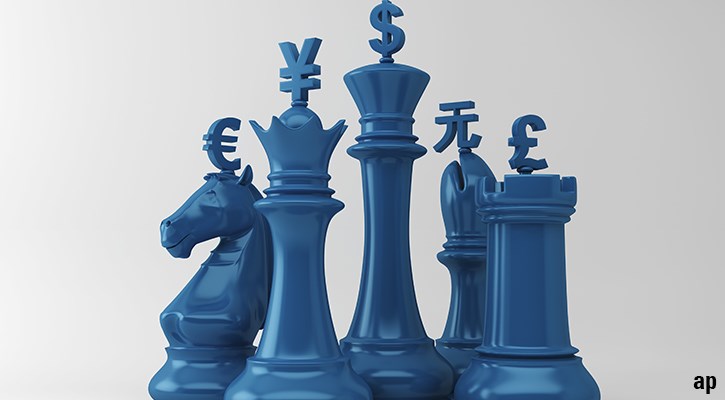Lehman Brothers meni konkurssiin 15. syyskuuta 2008. Viisi vuotta myöhemmin osakkeet ovat ottaneet useimmilla markkinoilla jo tappiot kiinni ja nousseet ennätystasoille. Moni sijoittaja kuitenkin panikoitui syksyllä 2008, myi osakkeet eikä ole palannut markkinoille. Mitä Lehmanista pitäisi oppia? Kuusi Morningstarin asiantuntijaa antaa oman vastauksensa.
Jason Stipp: I'm Jason Stipp for Morningstar.
Five years ago, the collapse of Lehman Brothers ignited an already-volatile mortgage crisis into a full-blown financial crisis, roiling markets worldwide and crushing investors' portfolios. Five years later, the financial systems have stabilized, the markets are reaching new highs, and the economy--while still slow--continues on its growth track.
So what lessons did we learn, what lessons should we learn, from the last five years? Morningstar experts offer their perspectives in this special report.
Heather Brilliant: I think one really important lesson for investors is to take into consideration leverage. So, there was really very little focus going into the financial crisis on how much debt companies were carrying on their balance sheets, and if there were some kind of downturn or unexpected event, what impact that would have on those companies.
A lot of investors really learned very painfully that leverage can mean that your equity can go to zero. I think the more equity investors take into consideration that focus on leverage, the better off they will be in the long run.
Russ Kinnel: A sound plan can withstand even the worst of crises. I think we saw that the markets, the economy, and our portfolios in the short-term were more fragile than we thought, but in the long term probably more resilient than we thought. The people who really stuck to their guns and had a good plan came out just fine. The people who panicked, maybe who didn't have a good plan in place, those are the ones who are still hurting, because the economy, the markets, and our portfolios came back very nicely.
Scott Burns: I don't know that it was the biggest lesson learned, [but] it should have been the biggest lesson … learned, and that has to do with personal liquidity. The people that suffered the most in the financial crisis, the ones who locked in losses and therefore weren't really able to participate in the big gains we had, was really just about what your liquidity and your threshold for pain are in the marketplace.
Some folks learned some very painful lessons, where they thought they were liquid in their investments. They didn't realize how illiquid they were in, say, their house, or they levered up their small business, or they owned hedge funds or private real estate--things that really locked up a lot of capital, and so as the market was trending down and they kept getting bad marks on their portfolios, it required them to sell the most liquid parts and lock in a lot of those losses.
That's the lesson that should be learned. The people that had the right game plan going into the financial crisis were able to buy, hold, and rebalance, and probably experienced only paper losses during the dip, and actual ultimate portfolio recovery and advancement [in the recovery].
Bob Johnson: I think both the recession and the recovery was different this time, and the main lesson that people need to learn is that all recoveries and all recessions are not the same. We started this recovery thinking it would be like a rocket ship. It was one of the worst recessions, therefore you’d have one of the biggest bounces.
In a typical recession, the Fed tightens the monetary policy to slow inflation. That causes the sensitive sectors like autos and housing to collapse, they fall apart; they send everybody home for six months. Then the Fed lightens up on the brakes a little bit, and the economy comes roaring back as rates come down. That's the typical pattern. It was a pattern for basically nine of the 10 recoveries we've had since World War II.
But as it turns out because this was much more of a financial-oriented crisis, it really did slow up the recovery dramatically and made it the slowest recovery on record.
But the other thing that I would say I've learned is that the recovery is also more sustainable--that slow isn't necessarily bad. We've now got a long glide path in front for us for the economy to get better, and that's primarily centered on the fact that real estate is only slightly recovered so far, and we're still [at only] half of where we were in terms of housing starts. So we've got a long way to go to improve, and in terms of percentage of GDP, it's a very small percent today. It has got the potential to double over the next five years. So I think there is a lot of room on the upside as we recover.
Don Phillips: I think the big lesson is that the market can throw a lot of things at you, and it's very difficult to tell what's going to happen. But what you can know is that there are things that you can do that can help you weather even the worst of storms. So if you think of the financial crisis that we've gone through, the worst financial crisis of our lifetimes, the collapse of Lehman, we've heard ad nauseam how terrible this was. But to me one of the most interesting things was the Vanguard Group put out a statement in, I believe, the fall of 2011 that said the average account balance in their 401(k) plans was now higher than it was prior to the collapse.
So if you think about that, if you did just a handful of things, if you had a broadly diversified portfolio, if you systematically rebalanced, if you continued to dollar-cost average, and you didn't do something crazy like try to time the market, jump-in, jump-out, you would have survived the worst financial crisis of our lifetime. You would have been whole within four years of the start.
John Rekenthaler: The biggest lesson the Lehman crisis taught us was the wrong lesson; it taught us to be afraid. Lehman was a shocking and horrible event as a stock investor, and it put the country into what I call the "national investment funk." Ever since then, people have been afraid of the stock market, and we've had this roaring recovery, bull market. It's been a stealth bull market, people didn't even know. There's a constant sense that we're not doing well even as stocks are doing very well.
The lesson that we should have learned is … whatever we can do to keep our emotions out of investing, the more the better. It's not just fear; greed on the other side of the equation in a bull market is just as damaging. But emotions are going to take us the wrong way after a big event. And whatever we collectively can do as investors to battle those emotions and push back in the other direction will be a benefit for us.









.jpg)











